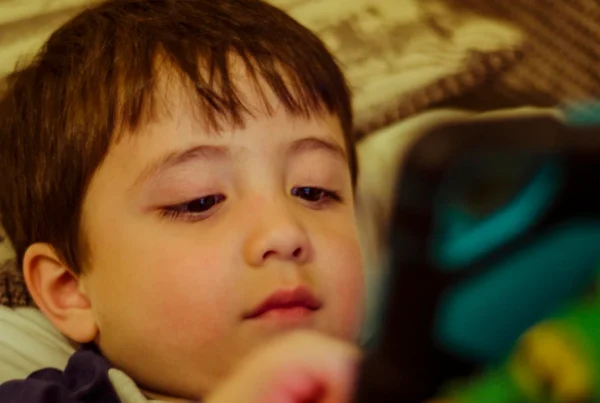Have you ever explored emotional regulation activities for teens when your child feels overwhelmed, perhaps after a tough day at school or following an intense interaction with friends?
These moments can be challenging, not just for teens but also for parents. As they move through adolescence, teens face many emotional challenges that can affect their mental well-being.
Parents play an essential role in supporting their emotional development during this stage.
Understanding teen emotions, engaging in practical emotional regulation activities, and incorporating faith and values are all critical in fostering a healthy emotional landscape for teens.
What is Emotional Regulation?
Emotional regulation refers to the ability to manage and respond to an emotional experience in a healthy and constructive way. It involves recognizing one’s emotions, understanding the triggers behind them, and using strategies to maintain control or appropriately express those emotions. Developing strong emotional regulation skills is crucial for teens, who often experience intense and fluctuating emotions. These skills help manage day-to-day stresses and contribute to long-term emotional resilience and mental well-being.
The Role of Parents in Supporting Teen’s Emotional Well-Being
Parents are the cornerstone of a teen’s overall support system, especially as their emotions fluctuate wildly during adolescence. During this developmental phase, emotions can shift rapidly, and a strong parental presence is crucial to helping teens navigate these emotional changes.
Parents can assist by providing a safe space for open communication, offering guidance, and modeling healthy emotional regulation strategies. When parents are actively involved in their teen’s emotional life, they can help them build resilience and equip them with tools to manage difficult emotions.
Understanding Teen Emotions and Their Challenges
Teenagers often experience a rollercoaster of emotions as they transition from childhood to adulthood.
Heightened emotions can shift quickly from joy to sadness, making it difficult for them to stay balanced. Some common challenges include:
- Anxiety: Concerns about school performance, social acceptance, and the future often trigger anxious thoughts.
- Depression: Pressure during adolescence can sometimes lead to hopelessness or a persistent low mood.
- Identity Crisis: The search for self-identity can create confusion and emotional turmoil.
Read Also: Helping Teens Overcoming Pressure: 3 Essential Tips
Given these challenges, it’s important to explore the external and internal factors that can impact how teens manage their emotional responses.
Biological changes and social media both play significant roles in shaping their emotional awareness and overall well-being.
Now, let’s dive deeper into the challenges for teens in regulating their emotions:
1. Impact of Social Media and Peer Pressure
Social media can both connect and overwhelm teens. Constant exposure to unrealistic standards fuels comparison and insecurity.
Many teens seek validation through likes and comments, which increases anxiety and emotional instability. For some, this cycle makes emotion regulation even harder.
Parents can support teens by helping teens express emotions about what they see online and encouraging breaks from negative content.
This approach improves self-awareness and teaches self regulation, reducing the emotional toll of social comparison.
2. Role of Hormones in Teen Emotional Fluctuations
During adolescence, hormonal surges often cause mood swings, irritability, and heightened emotions.
While natural, these shifts can make emotion regulation difficult. Parents should remember this is a normal developmental stage and guide teens with patience.
Simple practices such as mindfulness or deep breathing exercises calm the nervous system, helping teens pause before impulsive reactions.
These small steps strengthen self regulation skills and prepare teens for future challenging situations.
3. Practical Emotional Regulation Activities
Developing self regulation is vital as teens face daily stressors. Parents can introduce emotional regulation activities for kids that also work well for adolescents.
These activities help a child develop resilience and emotional stability while promoting lifelong self awareness.
Examples include:
- Taking a break: Encourage teens to step away from stress to regain a child calm state of mind.
- Deep breathing exercises: Practicing controlled breathing regulates the nervous system and clears thinking.
- Cognitive reframing: Teaching teens to challenge negative thoughts helps a child learn to respond differently to tough situations.
4. Building Emotional Intelligence and Resilience
Emotional intelligence is the ability to recognize, manage, and respond to emotions effectively.
For teens, this includes understanding their own feelings while respecting others’. Parents can model this by showing empathy, problem solving skills, and calm decision-making during stress.
Developing emotional intelligence also involves teaching self awareness, empathy, and responsible choices.
With guidance, students develop resilience and confidence in regulating their emotional responses.
5. Teaching Healthy Coping Strategies
In addition to emotional regulation activities, parents should encourage healthy coping strategies that help teens release stress positively.
Drawing, journaling, listening to music, or engaging in hobbies are constructive outlets that support mental health.
These strategies build resilience, reduce anxiety, and teach teens that not every stressful situation requires avoidance.
Instead, with the right self regulation skills, teens can face challenging situations calmly and confidently.
7 Emotional Regulation Activities for Teens
Below are some practical strategies that parents can encourage their teens to incorporate into their daily lives.
1. Mindfulness and Meditation Techniques
Mindfulness and meditation are powerful tools for emotional regulation. Encouraging teens to practice mindfulness helps them stay present and aware of their emotions without judgment. Simple techniques like deep breathing and guided meditation can reduce stress and improve emotional resilience.
2. Journaling
Journaling provides teens with a private outlet to express their thoughts and emotions. By writing down their feelings, teens can gain insight into their emotional patterns and identify triggers. Regular journaling can also help in processing complex emotions and finding clarity in difficult situations.
Try incorporating the following prompts below:
- “What are three things that made you feel happy today?”
This prompt encourages teens to focus on positive experiences, helping them cultivate gratitude and a more optimistic outlook.
- “Write about a time when you felt really stressed. What triggered those feelings, and how did you handle them?”
This helps teens identify stressors in their life and reflect on their coping strategies, promoting better emotional management.
- “Who in your life makes you feel supported, and how do they help you manage your emotions?”
This encourages teens to recognize the positive influences in their life and appreciate their support system.
- “Write about a goal you have and how your emotions motivate or hinder your progress.”
This prompt connects emotional regulation with goal-setting, helping teens understand the impact of their emotions on their aspirations.
 3. Exercise
3. Exercise
Physical activity is a proven method for boosting mood and reducing anxiety. Exercise releases endorphins, the body’s natural feel-good chemicals, which can improve emotional well-being. Encouraging teens to participate in regular physical activity, whether it’s a team sport or solo exercise, can have a positive impact on their emotional health.
Also Read: How to Foster Positive Parent-Child Relationships: A 4-Step Guide for Busy Parents
4. Creative Outlets
Creative activities such as drawing, painting, writing, or playing music allow teens to express themselves in non-verbal ways. These outlets can be therapeutic, helping teens process emotions that they might find difficult to articulate. Engaging in creative pursuits also fosters a sense of accomplishment and self-worth.
5. Sleep and Healthy Lifestyle
Adequate sleep and a healthy lifestyle are foundational to emotional well-being. Lack of sleep can exacerbate mood swings and emotional instability, making it harder for teens to manage their emotions. Encouraging a regular sleep schedule, balanced nutrition, and hydration can help stabilize mood and improve overall mental health.
6. Positive Self-Talk
Encourage your teenager to practice positive self-talk to manage their emotions effectively. Teach them to challenge negative thoughts and replace them with constructive affirmations. This helps build resilience, boost self-esteem, and foster a hopeful perspective.
7. Focusing on Positive Emotions
When your teen faces emotional challenges, gently guide them to focus on the positive aspects of their life. Encourage them to reflect on their achievements, supportive relationships, or joyful moments. This shift from negative to positive aspects helps cultivate optimism and aids in emotional regulation.
Finding Comfort and Strength in Prayer, Scripture, and Community
Prayer and scripture offer teens the ultimate way to find comfort and guidance in difficult times. Encouraging teens to turn to prayer can help them feel connected to a higher power and find peace amidst emotional turmoil.
Scriptures like Philippians 4:6-7 encourage believers to present their worries to God, and they can be particularly comforting. Additionally, being part of a Christian community provides a support network where teens can share their struggles and receive encouragement.
Also Read: Do Your Children Have Lots of Homework To Do? Here Are 10 Homework Tips for Parents
Partnering with a Supportive School
Faith-based schools and communities play a vital role in supporting the mental health of teens. These environments provide a space where faith and values are integrated into everyday life, helping teens develop a strong moral foundation.
At Sekolah Pelita Harapan, we provide an environment where faith and values are seamlessly integrated into everyday life, helping students develop a strong moral foundation. Through our Christian education, mentorship programs, and supportive peer networks, teens are equipped to navigate emotional challenges with a sense of purpose and community.
Our holistic approach ensures that students not only receive academic instruction but also grow spiritually, emotionally, and socially, empowering them to face life’s challenges with resilience and faith.
Supporting a teen’s emotional well-being is a multifaceted task that requires understanding, practical strategies, and the integration of faith and values. Parents, as primary caregivers, have the unique opportunity to guide their teens through emotional challenges by fostering open communication, encouraging healthy practices, and instilling a strong sense of faith. Through active listening, understanding the emotional landscape of adolescence, and equipping teens with tools for emotional regulation, parents can help their children build resilience and thrive mentally, emotionally, and spiritually.
At Sekolah Pelita Harapan (SPH), we understand the importance of nurturing a teen’s emotional well-being alongside their academic and spiritual growth. Our programs are designed to provide a holistic education that integrates character development and emotional support within a faith-based framework. By engaging with our SPH programs, you can ensure that your teen receives guidance and support to navigate the complexities of adolescence in a nurturing environment.
To learn more about how you can support your teen’s emotional well-being and explore how SPH can be part of this journey, visit our blog page and listen to our Rooted Parenting podcast for practical parental tips and insights. Find out how the SPH program can play a crucial role in your teen’s emotional and spiritual development.











